 W
WPéter Bacsó was a Hungarian film director and screenwriter.
 W
WCount Miklós Bánffy de Losoncz was a Hungarian nobleman, liberal politician, and historical novelist. His books include The Transylvanian Trilogy, and The Phoenix Land.
 W
WAttila Bartis is a Romanian-born Hungarian writer, photographer, dramatist and journalist. He received the Attila József Prize in 2005. His books have been translated into over 20 different languages. In 2001, he published his second novel, Tranquility, which was adapted into film in 2008. In 2017, he became a member of the Széchenyi Academy of Literature and Arts.
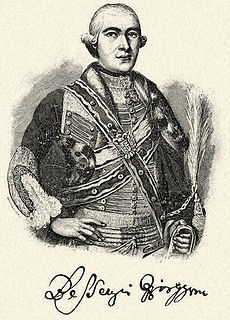 W
WGyörgy Bessenyei (1747–1811) was a Hungarian playwright and poet.
 W
WLajos Bíró was a Hungarian novelist, playwright, and screenwriter who wrote many films from the early 1920s through the late 1940s. He was born in Nagyvárad, Austria-Hungary and eventually moved to the United Kingdom where he worked as a scenario chief for London Film Productions run by Alexander Korda, collaborating on many screenplays with Arthur Wimperis. He died in London on 9 September 1948 of a heart attack. He is buried in the northern section of Hampstead Cemetery in north London.
 W
WGergely Csiky was a Hungarian dramatist.
 W
WIstván Csurka was a Hungarian radical nationalist politician, journalist and writer. He was the founder and inaugural leader of the Hungarian Justice and Life Party (MIÉP) from 1993 until his death. He was also a Member of Parliament from 1990 to 1994 and from 1998 to 2002.
 W
WGéza Fodor was a Hungarian art and literary critic, philosopher, and dramaturge. He was one of the founding members of the Katona József Theater in Budapest. He worked at the Institute of Philosophy of the Hungarian Academy of Sciences between 1967 and 1973 and at the Eötvös Loránd University thereafter.
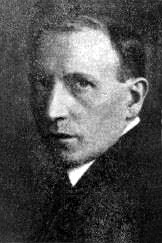 W
WImre Földes, born Imre Fleischmann, also known as Emmerich Feld was a Hungarian playwright and librettist.
 W
WMilán Füst was a Hungarian writer, poet and playwright.
 W
WÁrpád Göncz was a Hungarian writer, translator, agronomist and liberal politician, who served as President of Hungary from 2 May 1990 to 4 August 2000. Göncz played a role in the Hungarian Revolution of 1956, for which he was imprisoned for six years. After his release, he worked as a translator of English-language literary works.
 W
WGyula "Julius" Háy; 5 May 1900 – 7 May 1975) was a Hungarian communist intellectual and playwright. He wrote under the pen name Stefan Faber.
 W
WArthur Holitscher was a Hungarian playwright, novelist, essayist and writer on traveling. Born into an upper middle-class Jewish merchant family in Pest, Hungary, he began his career working for a bank for six years.
 W
WSándor Hunyady (1890–1942) was a Hungarian novelist and dramatist.
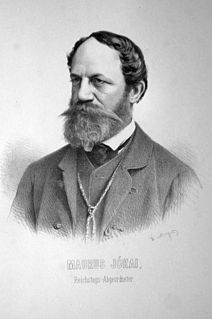 W
WMóric Jókay de Ásva, outside Hungary also known as Maurus Jokai or Mauritius Jókai, was a Hungarian nobleman, novelist, dramatist and revolutionary. He was active participant and a leading personality in the outbreak of Hungarian Liberal Revolution of 1848 in Pest. Jókai's romantic novels became very popular among the elite of Victorian era England; he was often compared to Dickens in the 19th century British press. One of his most famous fans and admirers was Queen Victoria herself.
 W
WJózsef Katona was a Hungarian playwright and poet, creator of the Hungarian historical tragedy Bánk bán.
 W
WBaron János Kemény was a Hungarian writer, theater director, dramatist, and founder of the Marosvécs/Brâncoveneşti Helikon community.
 W
WMiklos Laszlo was a playwright and naturalized American citizen born in Budapest, Hungary. He is best remembered for his play Illatszertár, also known as Parfumerie, which was used as the storyline for three movies, The Shop Around the Corner, In the Good Old Summertime, and, most recently, You've Got Mail. The play also was adapted for the Broadway stage as the musical She Loves Me.
 W
WMelchior Lengyel was a Hungarian writer, dramatist, and film screenwriter of Jewish heritage.
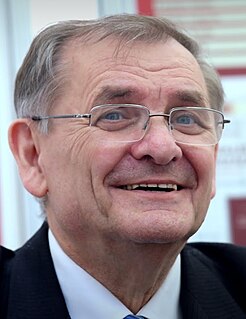 W
WSándor Lezsák is a Hungarian poet, teacher and politician. Between 2 April 2012 and 10 May 2012, Lezsák was temporarily the Speaker of the National Assembly of Hungary, as the resignation of Pál Schmitt led to Speaker László Kövér becoming acting President of Hungary.
 W
WImre Madách de Sztregova et Kelecsény was a Hungarian aristocrat, writer, poet, lawyer and politician. His major work is The Tragedy of Man. It is a dramatic poem approximately 4000 lines long, which elaborates on ideas comparable to Goethe's Faust. The author was encouraged and advised by János Arany, one of the most famous of the 19th-century Hungarian poets.
 W
WFerenc Molnár, often anglicized as Franz Molnar, was a Hungarian-born author, stage-director, dramatist, and poet, widely regarded as Hungary’s most celebrated and controversial playwright. His primary aim through his writing was to entertain by transforming his personal experiences into literary works of art. He was never connected to any one literary movement but he did utilize the precepts of naturalism, Neo-Romanticism, Expressionism, and the Freudian psychoanalytical concepts, but only as long as they suited his desires. “By fusing the realistic narrative and stage tradition of Hungary with Western influences into a cosmopolitan amalgam, Molnár emerged as a versatile artist whose style was uniquely his own.”
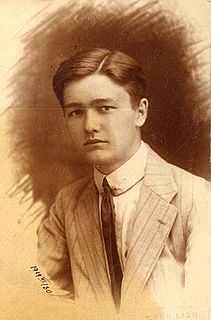 W
WLászló Németh was a Hungarian dentist, writer, dramatist and essayist. He was born in Nagybánya the son of József Németh (1873–1946) and Vilma Gaál (1879–1957). Over the Christmas of 1925, he married Ella Démusz (1905–1989), the daughter of János Démusz, a keeper of a public house. Between 1926 and 1944 they had six daughters, but two of them died in infancy. In 1959 he visited the Soviet Union. In the last part of his life he lived and worked in Tihany. He died from a stroke on 3 March 1975 in Budapest and was buried in Farkasréti Cemetery, Budapest, where he shares a grave with his wife.
 W
WJános Nyíri was a theatre director, journalist and writer. He wrote several highly acclaimed plays and novels, including Battlefields and Playgrounds, recognized by The Observer as the most important novel written by a survivor of the Holocaust.
 W
WKároly Pap was a Hungarian writer.
 W
WErnő Polgár (born Ernö Csupity; 27 January 1954 in Bácsalmás, died 28 October 2018 in Borneo is a Radnoti Prize-winning Nagy Lajos Prize-winning In 2007 he won the one of the highest Hungarian prizes: He was nominated for Nobel Prize in Literature in 2017 for the year of 2018. World literary rank Hungarian-european author, editor, littérateur and dramaturgist. From 2018 he was living in Borneo Island, Brunei Kingdom in his "writing house".
 W
WGyörgy Schwajda was a Hungarian dramatist and theater director. Schwajda wrote several dramas and was the theater director of the city theater in Kaposvar.
 W
WRobert B Suda is a London-based theatre director, playwright and producer who has a BA and two MAs in cultural management, theatre project management and advanced theatre studies. Since 1997, he has directed and produced numerous shows on stage, which have been highly acclaimed by both critics and audiences. He also has significant experience in producing for stage and for TV. He was both educated in and employed Constantin Stanislavski's method of psychological realism Theatrical realism and the directing technique of Bertold Brecht Epic theatre. His works are also highly influenced by neo-expressionism, constructivism and minimalism. In his productions he has combined these techniques with elements of physical theatre, dance, pantomime and minimalist architectural set design both in prose and musical productions. He worked in long-term artistic collaboration with Veronika Karsai pantomime artist and physical-theatre director. During their teamwork they developed and staged two productions establishing their own theatrical form of expression. Suda's another long-term collaborative artistic colleague was Attila Galambos with whom they not only have written mainstream musicals, but Galambos, as an actor, was a part of many of Suda's productions . In 2005, he was selected as one of the best young playwrights of the year by the Young Writers’ Association, Hungary, (FISz) for his play Cursed Cows, which he both wrote and directed. The script was published by the Association in 2006.
 W
WAndrás Sütő was an ethnic Hungarian writer and politician in Romania, one of the leading writers in the Hungarian language in the 20th century.
 W
WDezső Szomory was a Hungarian Jewish writer and dramatist. In his history plays and other works, he developed a unique tone and style of Budapest Hungarian; his work has been compared to that of Marcel Proust. He died during the Holocaust while living under Swedish protection in Budapest, suffering "starvation, loneliness, and depression".
 W
WJohann von Vásáry or János Vaszary (1899–1963) was a Hungarian actor, screenwriter, playwright and film director. Several of his plays were adapted into films including I Entrust My Wife to You in 1943.
 W
WAndrás Visky is a Hungarian-Romanian poet, playwright and essayist and the resident dramaturg at Cluj-Napoca Hungarian Theatre, Romania, where he also holds the position of associate artistic director. His plays have been staged in several countries including Romania, Hungary, France, Italy, Poland, Slovenia, England, Scotland and the United States. He has a DLA from the University of Theatre and Film, Budapest and since 1994 he has lectured at the Babeş-Bolyai University in the Department of Theatre and Television. He is one of the co-founders and the former executive director of Koinónia Publishing.